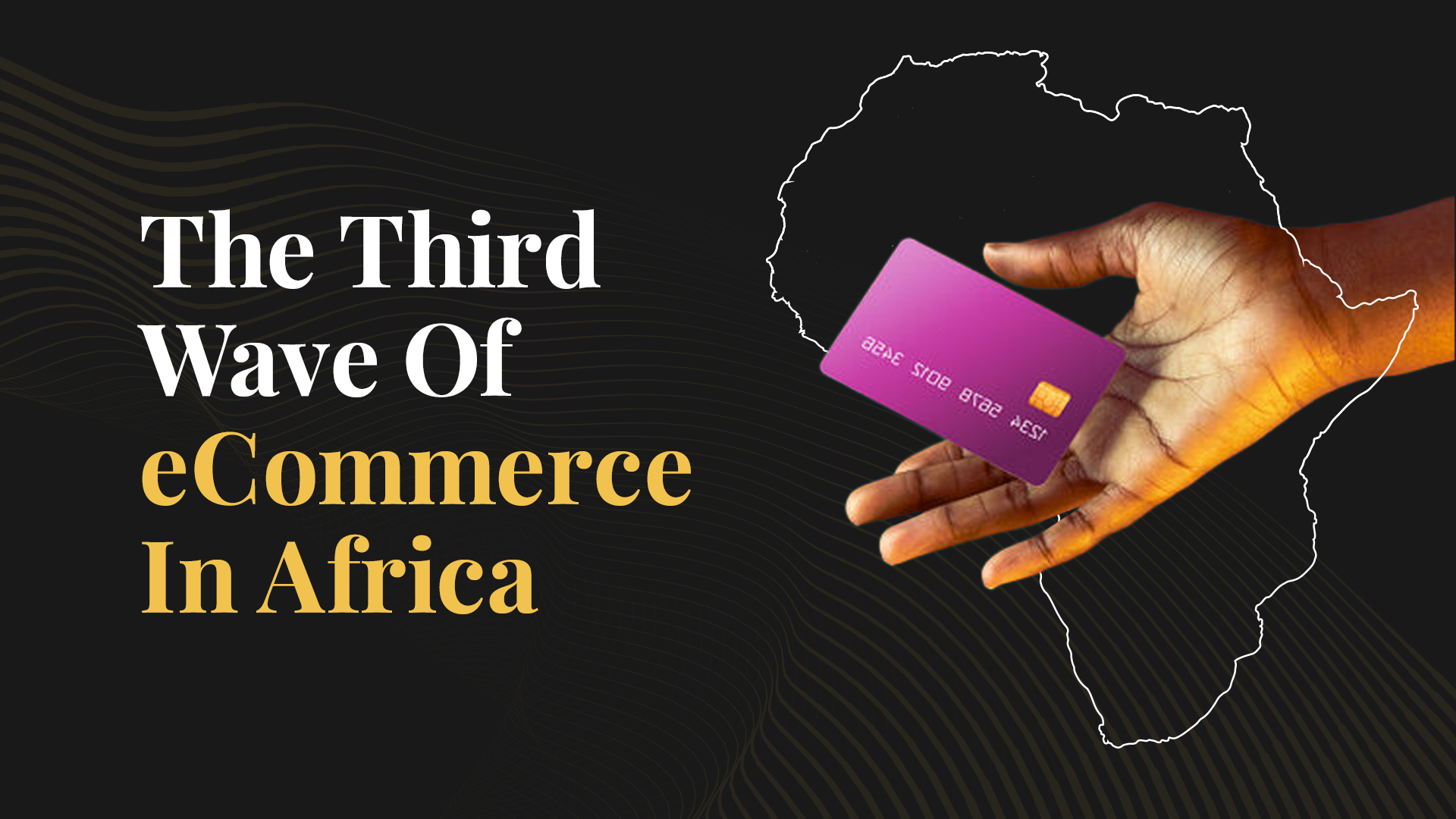This guest article was contributed to TechCabal by Osinachi Ukomadu, CEO of Heroshe.
It’s 2:00 p.m. in Accra, Ghana. Efua has just received her kanga outfit which she bought from a Kenyan ecommerce store. She tries out the loose-fitting red-and-yellow-patterned dress and looks at herself in the mirror. The dress fits perfectly.
Efua shares a picture of herself with her friends of her wearing the dress, anticipating their response. She also heads over to Instagram to say thank you to the vendor, Barika, who, upon seeing the message, is relieved her customer is pleased.
Barika, who’s been selling online for three years to supplement her income from her nine-to-five job, is elated at the seamless transaction that has happened. The payment was handled by a fintech company that helped change Efua’s Ghanaian cedis to Kenyan shillings, all at a low cost; the shipping and delivery of the kanga outfit was done by a logistics service provider at a tiny fraction of the dress’ cost.
This particular transaction reminds Barika of how she prefers her business transactions to take place. She wishes for no delays in delivery, no trust issues with customers, and no failed payments.
The promise and hope of many Africans and ecommerce startups are that ecommerce would operate seamlessly, exactly like the fictional story you just read. But over the past decade, the African ecommerce space, which is faced with numerous challenges, has evolved, with many startups launching and shutting down across the continent.
It’s noteworthy that while the bar for entry in the world of ecommerce is low, meaning almost anyone with a smartphone and internet access can set up an ecommerce store, many players in that space have struggled with growth and strategic priorities.
Why is this the case, and what opportunities exist for players in the ecommerce space who are on the journey to fulfilling the hopes of many Africans?
The internet is redesigning commerce
The evolution of commerce in Africa has come a long way from the era of trade by barter to the current era of ecommerce which began globally in the 1990s due to the proliferation of consumer internet and electronic payments.
While the ecommerce behemoths, eBay and Amazon, launched in 1995, Africa’s ecommerce boom didn’t happen until almost two decades later, in the early 2010s, when African ecommerce startups such as Jumia, Konga, and Takealot.com emerged. They were fuelled by an early venture capital boom and mainly emulated Western business models.
Between 2012 and 2015, Jumia, Zando, Takealot.com, and Konga raised over $855 million. In 2014, Jumia raised $150 million, more than half of what the entire African tech ecosystem raised the following year.
Heralded as the next Amazons of Africa, these startups faced a large swath of difficulties that eventually led to the demise of many of them. Between 2017 and 2019, prominent startups such as Dealday, Efritin, OLX, and Konga retrenched, reorganised, or closed down.
The optimism about ecommerce in Africa clouded some obvious challenges operators faced on the continent. They had to deal with the reality of a small addressable middle-class market, a lack of functional addressing systems, poor road networks, a general preference for cash payments, the lack of payment rails and logistics networks, worries about fake products, and escalating security concerns—uphill battles African ecommerce companies are still fighting to this day.
This first phase of ecommerce startups in Africa caused many to question the viability of ecommerce on the continent, but improving market conditions, the necessity for ecommerce, and the huge potential market size made up of a large population of people under 40 led many to keep trying, in hopes of attaining some level of success.
By the late 2010s, the return of investors’ interest in ecommerce took a different direction as they focused on companies that are digitising retail distribution, such as Wasoko (formerly Sokowatch), Marketforce, Trade Depot, Alerzo, and Omnibiz. The logic behind this was simple: Informal retailers are responsible for 90% of retail transactions in Africa, and 80% of fast-moving consumer goods (FMCGs) to African households. These startups began to bring order to the uncoordinated, fragmented, and unstructured informal retail sector.
More recently, there’s been a third wave of ecommerce startups that are digitising offline commerce for restaurants and mom-and-pop shops by providing them with tools to enable them to come online and do more. In 2020, Flutterwave, Interswitch, and Paystack launched their ecommerce solutions. Startups like Orda, Kippa, and Sabi, founded within the last three years, also provide ecommerce enablement tools.
Apparently, African ecommerce players have moved on from imitating Western startups, and they’re finding their feet and solving the continent’s problem.
The penetration of ecommerce into Africa has also risen from 13% in 2017, according to the Statista Digital Market Outlook, to 28%, or a total ecommerce user number of 334 million in 2021. All this has been bolstered by an increase in payment services, penetration of the internet in the continent, and the proliferation of cheap smartphones.
But what lies ahead for ecommerce players in Africa? What industry trends should these players keep in mind as they decide on their strategic priorities?
Looking on the bright side, Africa will not have one or two big players like Amazon dominate the ecommerce space; the industry will be largely fragmented with different players. These players will be comprised of a mix of social platforms, marketplaces, and pure ecommerce companies.
This is primarily because of the continent’s diversity; Africa is made of countries with different cultures, economies, and currencies.
Amazon is often seen as the de facto example of ecommerce success, but this comparison happens without the consideration that its starting base—America—a country with supporting infrastructure, is different from Africa, a continent.
In terms of economy size and purchasing power, Nigeria, South Africa, and Egypt are leading on the continent, while Seychelles, Cape Verde, and Lesotho trail far behind, below the number 40 rank. These differences often mean that some markets are less desirable than others or have given enough room for other players to exist and thrive.
Local players will continue to matter because sourcing and curation is still an issue, but it doesn’t stop ecommerce behemoths from coming to play.
Here are other trends and questions under consideration:
What role will crypto play in the ecommerce space?
Will Africans continue to conduct trade in a social manner?
Will ecommerce help increase trade between African countries?
What infrastructure pillars are required to build out ecommerce in Africa?
To answer these questions more in-depth, I’ve created an insightful article on the future of ecommerce in Africa, with contributions from 20 African market experts. This article highlights the challenges and opportunities for organisations building solutions in the rapidly evolving and increasingly competitive African ecommerce landscape.
A longer version of this article may be read here.
Additional contributors: Eric Osiakwan – managing partner, Chanzo Capital; Bade Aluko, managing partner, White Hibiscus Capital; Kenneth Legesi, CEO Ortus Africa Capital; Jonathan Ntege Lubwama – editor-in-chief, Digest Africa; Daniel Adeyemi – senior writer, TechCabal; Chikamso Nwani – editor-in-chief, Open Africa; Pardon Makumbe – managing partner, CRE VC; and Toyosi Oni – Associate CRE VC.




















